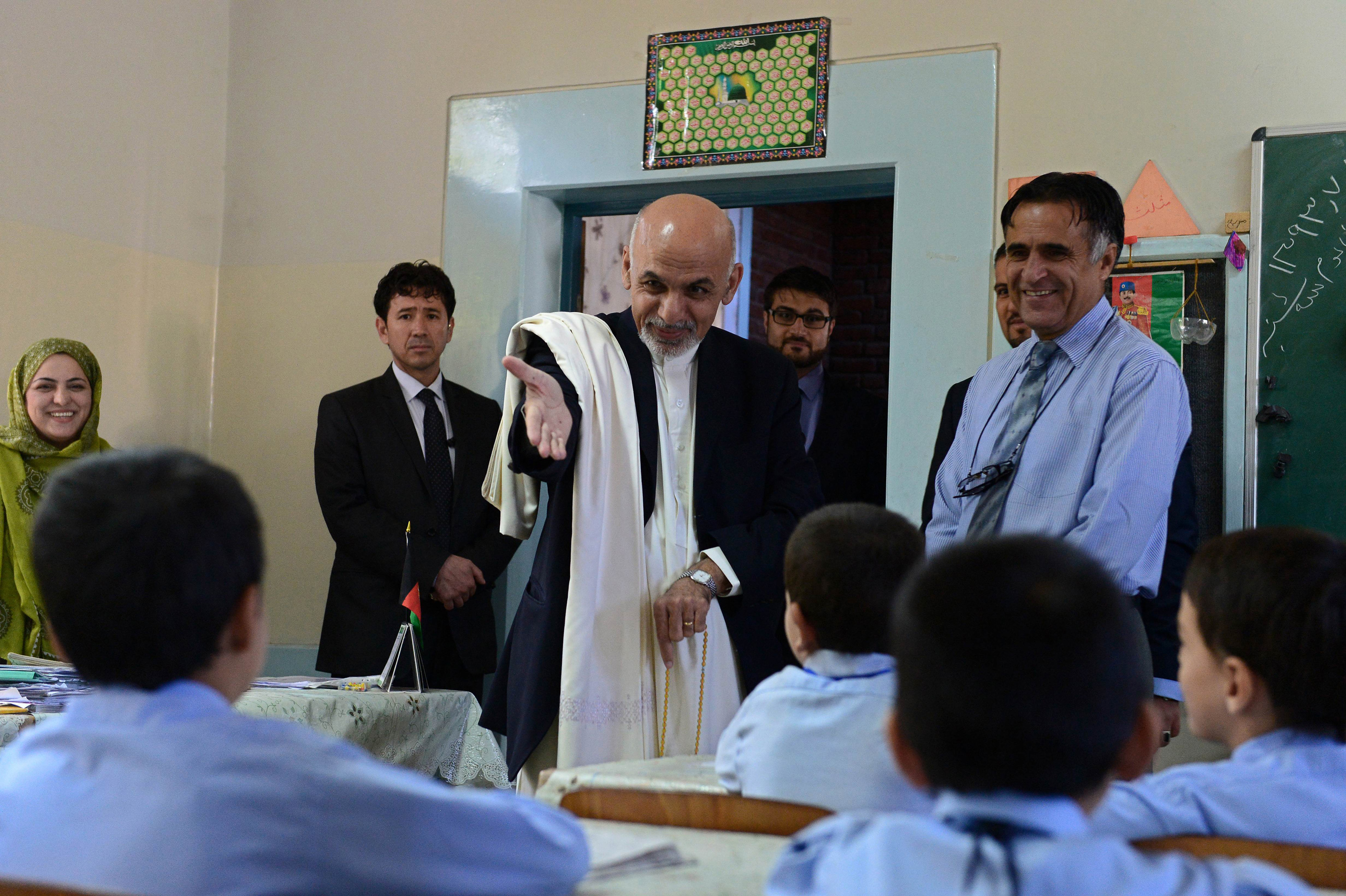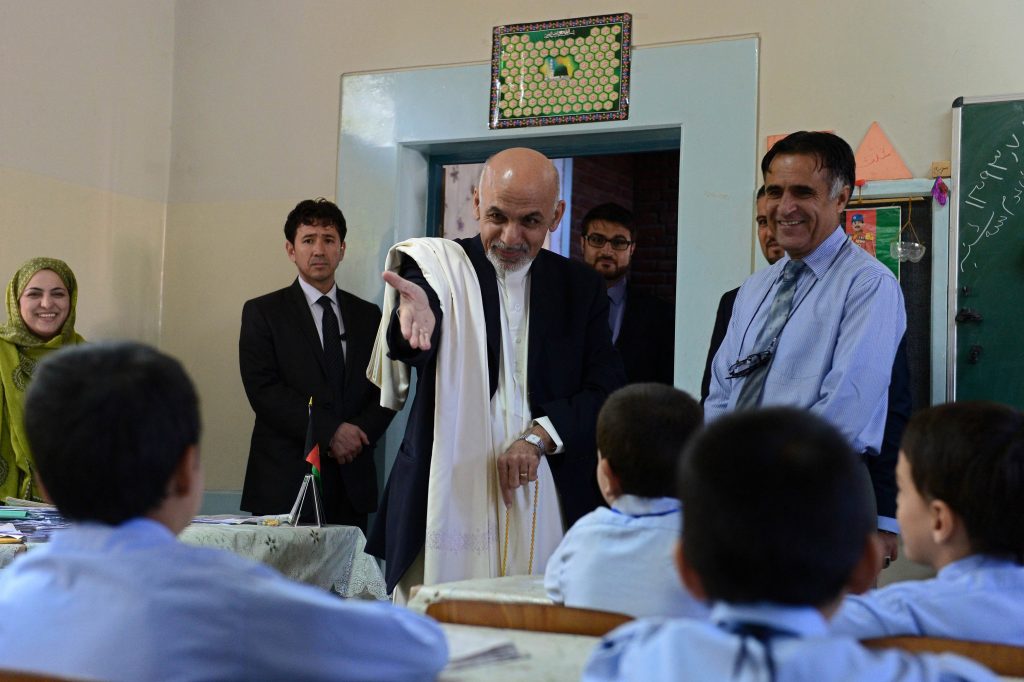
There is painful irony in watching the earnest, smiling Ashraf Ghani take office as Afghanistan’s president. As did his predecessor, Hamid Karzai, Ghani begins his term bearing enormous hopes of both Afghans and the world. If anything, Ghani—as a development economist, longtime World Bank officer and a practiced administrator—has more experience at many parts of the job than Karzai did upon becoming president. He wrote a book five years ago titled Fixing Failed States.
But to succeed, Ghani will need more consistent, careful support from the United States and Europe than Afghanistan received in Karzai’s thirteen years in office. The painful part of watching him begin is in fearing that he might not get it.
On his first full day in office, Ghani had his government sign new security agreements with the United States and NATO to let them keep as many as 9,800 troops in Afghanistan in the next two years to train and advise the country’s still-weak army for its war against the Taliban. The agreements set a firm schedule for that mission to be scaled down to zero within the next 800 days. But we can have no confidence that a withdrawal on that schedule will permit Ghani’s government to maintain even minimal security against the Taliban. If it’s needed, will the Obama administration consider extending that mission in 2016, a US presidential election year?
How Strong is Ghani?
Ghani’s other emergencies are no less dangerous. Analysts such as Shuja Nawaz, director of the Atlantic Council’s South Asia Center, note that Ghani’s only hope of assembling an effective government is to rebuff the political supporters now seeking appointment to top jobs, and instead to name the most competent people. That step would be difficult for any Afghan president, but may now be tougher for Ghani because he has won neither a clean electoral victory nor the strong political mandate that would come from it. Instead, Ghani already depends heavily on other factions. He ran for president with the northern warlord Abdurrashid Dostum as his running mate. And the election result, disputed and less certain because of fraud, has forced him to take office under a political deal for a coalition government with Abdullah. (Full disclosure: Before his election as president, Ghani served for several years on the Atlantic Council’s International Advisory Board.)
As Nawaz and others note, Ghani (and now also Abdullah) must attack corruption in a way that no modern Afghan leader ever has done. A powerful first step would be to set up a truly independent (and therefore politically dangerous) investigation and prosecution of the men, including relatives of Karzai and his vice president, Mohammad Fahim, who looted the accounts of the country’s largest commercial bank, Kabul Bank. The clan of Fahim, who died in March, gave support to Abdullah in the election. Can Ghani, with Abdullah and Dostum, turn back the expectations of Afghanistan’s elites for access to corrupt money-making opportunities?
Ghani takes over a government that is dependent on the United States and other donors for 60 percent of Afghanistan’s state budget. Ghani has explained lucidly how international aid has deepened the corruption problem—a critique that often tracks with that of the United States’ own special inspector general for Afghanistan reconstruction. Can the US and its allies re-shape their aid to reduce their own role in corruption, while delivering less flimsy roads and schools?
Karzai and Bush
Here’s why we should worry for Ghani’s future: Thirteen years ago, the United States and its allies played key roles in identifying Hamid Karzai as the potential leader for Afghanistan as it emerged from the destruction of Taliban rule. (Karzai, like Ghani, was described by news media, Afghans and foreigners as open, accessible and earnest in mien.) When Karzai asked in 2002 for an international peacekeeping force to deploy nationwide and help secure the country against local warlords or a return of the Taliban, (a proposal backed by then-Secretary of State Colin Powell), the Bush administration refused, in part because it already had shifted its focus to invading Iraq. This left Karzai with no choice but to cut political deals with those warlords, including the war criminals and drug traffickers among them. It left the door open for the Taliban’s return, which necessitated a truly massive and began the long souring of relations between Washington and the man it supported in Kabul.
We can’t be sure that stronger support and a consistent focus by the United States would have been enough to create a stable Afghan state under Karzai rather than the still-intensive war that the country faces thirteen years later. But we can be sure that, as Ghani takes on his massive challenges, he is fully as dependent now as Karzai was then on his foreign partners for success. Let’s hope it goes better this time around.
James Rupert is an editor at the Atlantic Council.
Image: Afghan President Ashraf Ghani, center, talks with students at Kabul’s Amani High School during a visit on his second day in office. (REUTERS/Wakil Kohsar/Pool)
